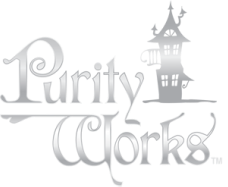As a parent, it’s not always easy, though. Watching your child fail is painful. And as they get older, there’s a tendency to take it personally. DON’T. Your child is still learning and so are you. (If you’re not experiencing failures any longer, let me know—I’d like to hear how you tell THAT story.)
Thus, it’s easy to see our kids do something surprising, disappointing, or outright wrong and think they’ve gone off the deep end—or WE have. We’ve failed as parents, they’ve failed as our children … and in no area is this more important than in the pursuit of purity.
What if your child “fails”? What if they look at porn, send a sext, sneak out of the house, get drunk (while they’re underage), have premarital sex? Chances are, they will. In our culture, it’s very rarely a question of “if.”
So when your angelic child totally changes things up, remind yourself that they are learning. It will help you calm down and not take it personally. Then take a deep breath, and DON’T say …
1. “I can’t believe you did this!” Really? Maybe you’ve been raising something other than a human being. People are curious. One of your repeated “nos” may likely result in some kind of “I wonder if it’s really that bad” curiosity. And some personalities just have to touch the stove because they’re not sure it’s TRULY hot and will send them to the ER for burn treatment. And burn treatment, though painful, is a powerful lesson learned.
2. “How could you?” Again, congratulations. You have a real human on your hands. They could because they so wanted to know what it was like. They wanted to experience it. Isn’t that what real living is? Pretty valuable in a low-touch, high-tech culture, even if the results aren’t what we expect. And those results teach a lesson when we seek to engage and talk it over.
3. Scream, yell and curse. Reinforces the popular belief that parents are crazy or know very little. Breathe. Walk away. Explain that you need to get your emotions in check before you say more. Remind yourself that the same tiny, innocent baby you brought home is still in there somewhere.
4. Say nothing. Only if you want them to think you condone their behavior, or don’t care. Your child needs and wants your input. Believe it or not, studies show that your child would rather hear the truth from you than any other source. Now is your chance! Seek to understand and then instruct.
5. “Don’t you have a brain in your head?!” Yes, they do! And it’s probably developing normally. Give it some time. The pre-frontal cortex is still finishing up its development at 24 or 25.
At the point when your child does something hard for you to handle, remember: this is your greatest opportunity to do something positive for them. Not that there won’t be consequences. But there should be mature conversation first, led by a (supposedly mature) adult who is holding back on the emotion and seeking to understand.
And by the way, I can only write this post because I’ve said ALL these wrong things. 52 and still failing. Still learning.
AND NOW:
Some right things:
“I’m really proud of you for being honest enough to tell me.”
“I can see you’re really curious about that. Let’s make some time to talk about it.”
“Wow, that’s intense. I’m not sure what to say except to remind you that I love you no matter what. Can you tell me about what happened?” (Never assume you know exactly what happened. You almost never do.)
“You’re mature enough to be ready to learn about this. Can you tell me what you know and what you’d like to know?”
And the no-brainer: “I love you. Always. No matter what.”


 RSS Feed
RSS Feed


